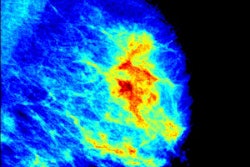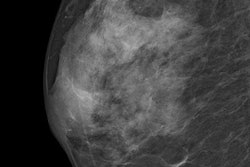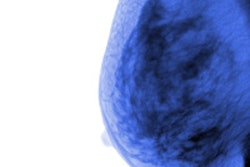
A study encompassing more than 100,000 women in Egypt has confirmed that an increase in mammographic breast density -- based on the American College of Radiology classifications -- is associated with a heightened risk of breast cancer.
The study uses data from the Egyptian national breast cancer screening program, officially launched in 2008. From its inception until December 2015, Dr. Nivine Chalabi from Ain Shams University in Cairo and colleagues examined the medical records of 136,833 women ranging in age from 40 to 65. The group sought to determine the relationship between breast cancer risk and the recent ACR classification of mammographic densities and found that increased breast density leads to increased risk.
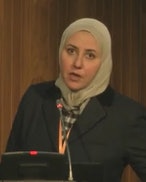 Dr. Nivine Chalabi from Ain Shams University in Cairo.
Dr. Nivine Chalabi from Ain Shams University in Cairo.Three radiologists with experience ranging from 10 to 15 years categorized the women into four groups based on the ACR guidelines: class A, almost entirely fatty; class B, scattered fibroglandular tissue; class C, heterogeneously dense; and class D, extremely dense. They found 1,586 breast cancer cases that were histopathologically proven.
The calculated total frequency of cancer was 0.046. The frequencies per category were as follows:
- Class D: 2.31%
- Class C: 1.62%
- Class B: 1.09%
- Class A: 0.72%
"We found statistically highly significant increased frequency of positive cases in ACR mammography density class B in comparison to class A," Chalabi said during last month's ECR 2016 in Vienna. "And the same occurred between each of the two groups."
The researchers also found a positive, significant relative risk among each higher mammographic density class compared with the less dense one -- even among the C and D classes.
"There was a significant increase risk of breast cancer with high densities collectively: ACR-C and ACR-D," she added. "The results of our study show that in Egypt, as evidence proved in the literature already and repeated by my colleague speakers, an increase in the mammographic density is associated with an increase in frequency and risk for breast cancer."
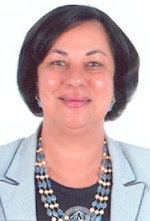 Dr. Dorria Saleh El Sayed Salem.
Dr. Dorria Saleh El Sayed Salem.She added that the value of their results comes from the fact they originated from the country where the first metastatic breast cancer was discovered.
Dr. Dorria Saleh El Sayed Salem, professor of radiology at Cairo University Hospital, said it's possible there are more category D cases because of the younger age group included in the study.
"How this affects other radiologists is it may reflect that complementing the mammography with tomosynthesis and ultrasound would be advisable in dense breasts," noted Salem, who is on the AuntMinnieMiddleEast.com Editorial Advisory Board but was not associated with the study.





